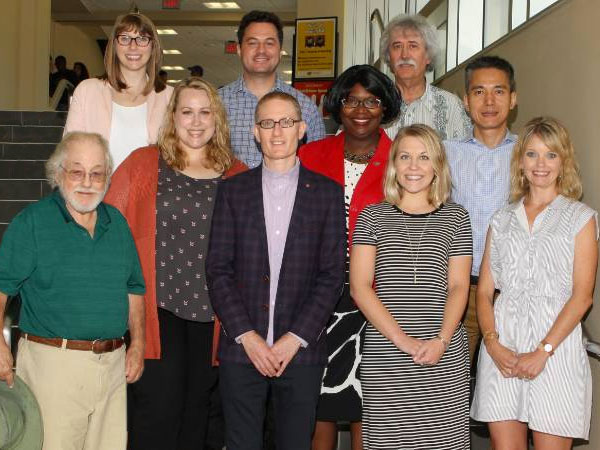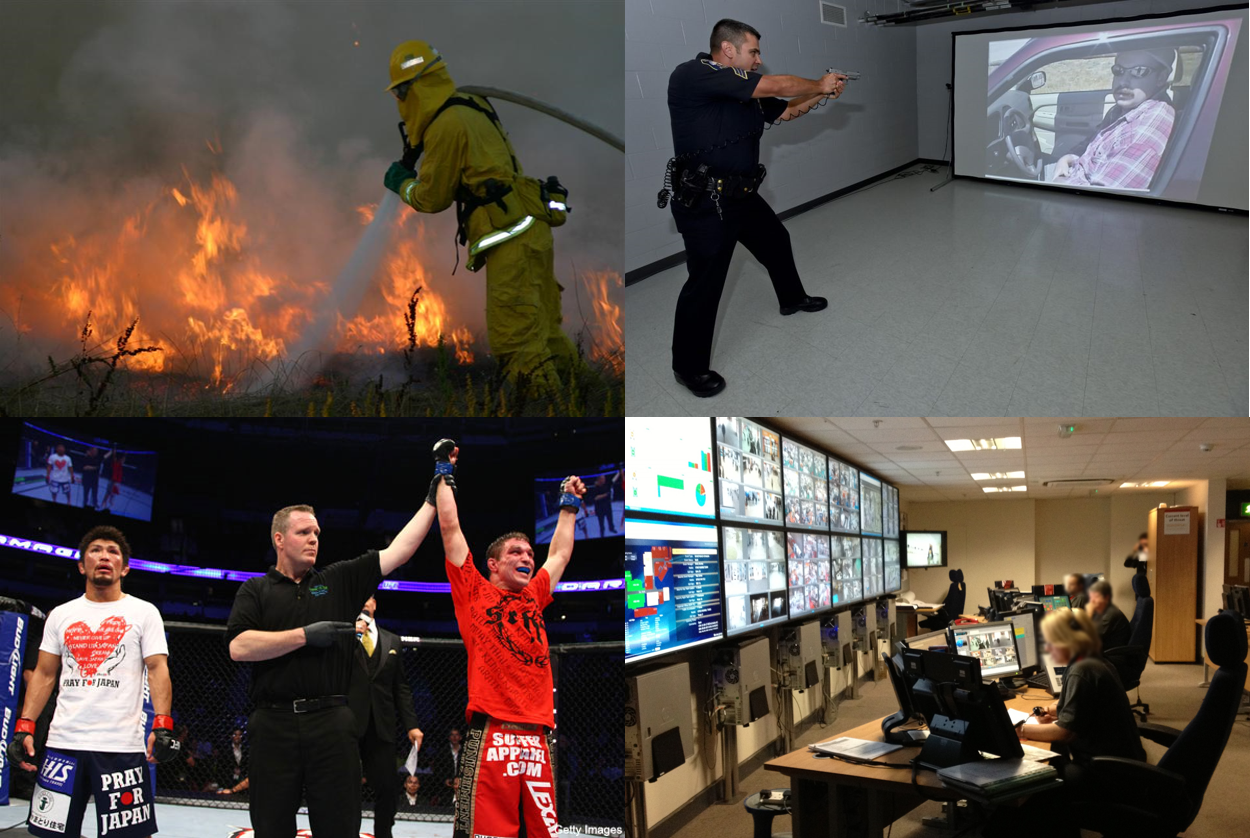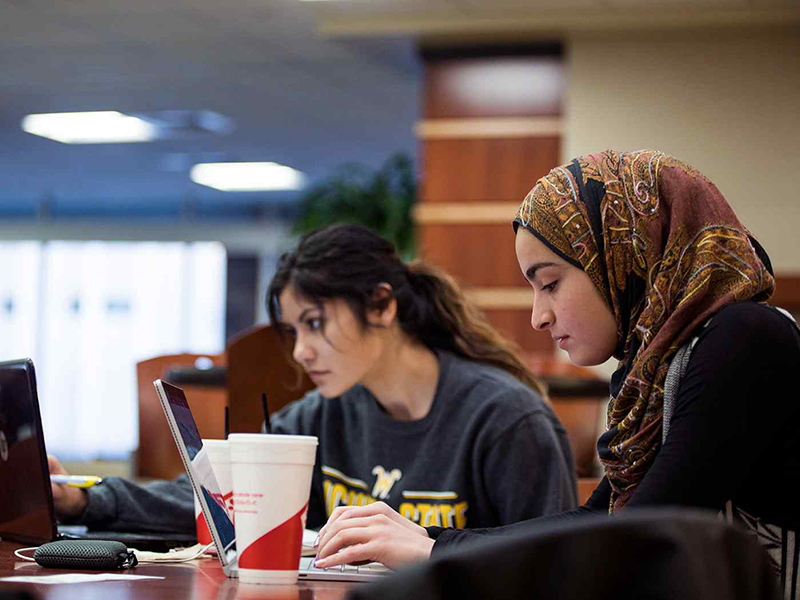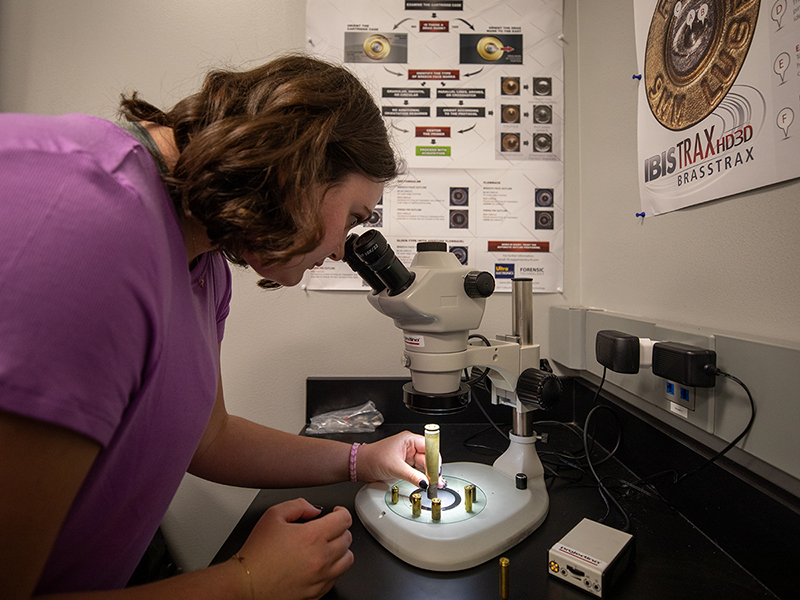What makes experts good at what they do? How do they make decisions? These are just a couple questions that Dr. Joel Suss is trying to answer in the Applied Cognition and Expertise (ACE) Lab at Wichita State University.
Suss, an assistant professor in psychology and director of the ACE lab, investigates human performance and cognition in complex, dynamic and often stressful operational settings. Suss and his co-workers seek to define expertise in a given field and design and validate solutions to problems within that field.
For the past five years, the ACE lab has focused its study on law enforcement. But Suss has been working on this subject for 20 years.
The more he taught, the more he wondered why officers used those specific techniques and protocols. Suss worked in private security in his home country of Australia. As part of this job, he trained people in decision making, performing under stressful situations, shooting, and defensive tactics.
“I started asking if there were any better training methods. I wanted to know how science could guide the development of training and what evidence there was that the current training worked,” Suss said.
He found a few books related to the police and military, but they didn’t contain the level of detail and depth he had hoped for.
“I didn’t find many answers,” he said.
Suss spent a long time searching for useful academia through trial and error. Eventually, he discovered “Sources of Power” by Gary Klein. The book focused on Naturalistic Decision Making and led Suss to return to university to study psychology.
After years of research and study, Suss is testing law-enforcement decision-making and expertise in a series of experiments at Wichita State.
The goals of the experiments are to define expertise in law enforcement, understand the perceptual–cognitive basis for expertise and skill performance, and design and validate solutions to mitigate error, accelerate learning, and improve resilience, Suss says.
Director of ACE lab
Suss is asking two questions: Can police officers distinguish between someone drawing a weapon and or non-weapon? Can police officers read a person’s body language early enough to make the distinction between a weapon and non-weapon?
He is conducting two studies to answer each question.
In the first study, Suss and graduate student Alexis Raushel videoed actors drawing weapons and non-weapons from different, concealed places on their bodies. Each movement was edited into five versions. The first version cuts to black just after the actor starts to move. Each successive version reveals more of the actor's action to the point where the whole action is shown.
Then officers are asked to watch the videos in random order and determine whether the participant is drawing a weapon or non-weapon.
In the second study, Suss, graduate student Monica Connelly, and Engineering Technology Lab Manager Richard Sack recruited an actor to wear a motion capture suit and perform the same actions as in the first study. However, when the officers watch the video, all they see is a black screen with white dots.
Those dots represent the joints of the actor. This forces the officer to solely rely on the actor’s body movement to distinguish a weapon from a non-weapon.
Suss is still conducting both studies and hopes to have results soon. He hopes that his studies will accelerate skill development and expertise in law enforcement.
"I hope that our studies provide scientific evidence that can inform police training practices," he said. "Supplementing current police training in this way could pay huge dividends for police departments and the citizens they serve."
Suss wants people to know that despite all the media attention given to law enforcement’s decision-making and use of force, there is very little research being done related to police training. He hopes to change that by getting more students and law enforcement officers involved.
For more information about the ACE lab and Suss' additional work, email him at joel.suss@wichita.edu.


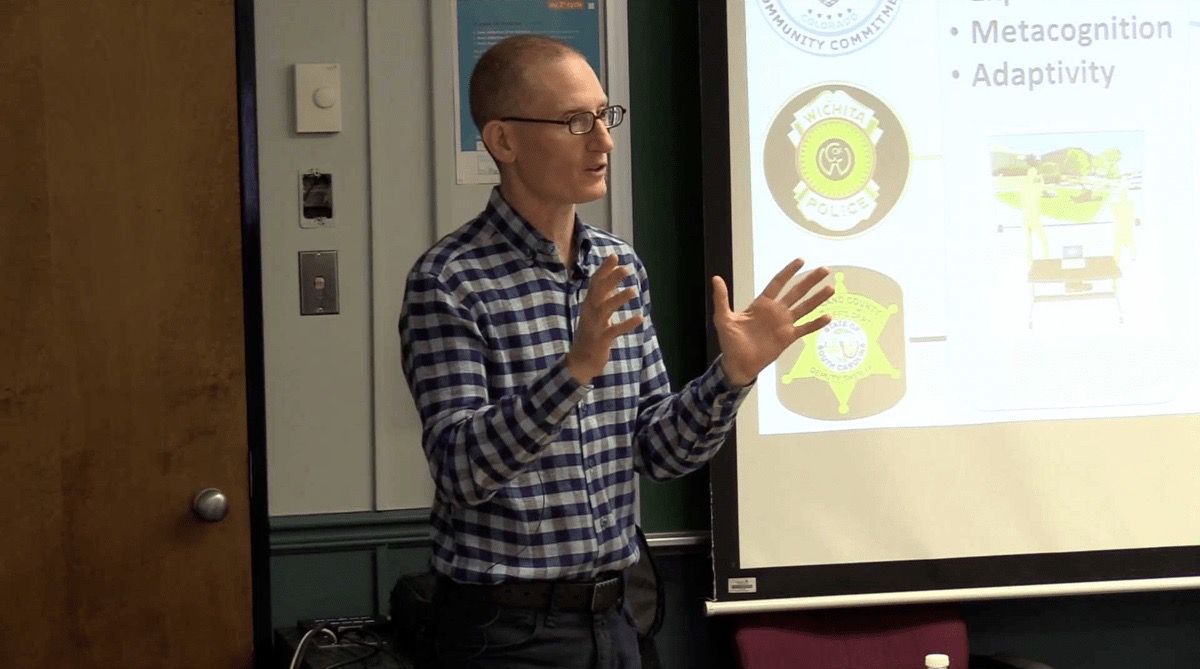 Courtesy
Courtesy